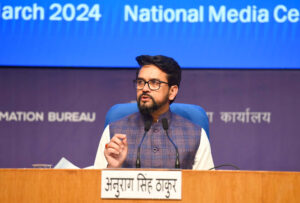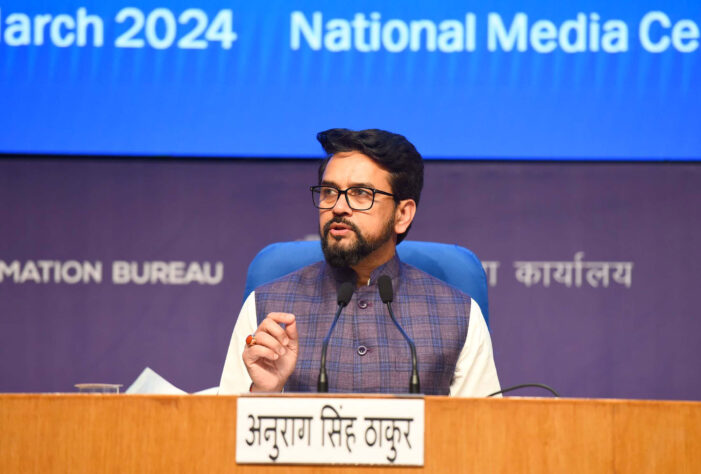In a decisive move, the Indian government has announced the prohibition of 18 over-the-top (OTT) platforms due to their dissemination of obscene, vulgar, and in some cases, pornographic content. This action follows repeated warnings issued by the Ministry of Information and Broadcasting, as disclosed by Union Minister Anurag Thakur.
Among the targeted platforms, one app alone had accrued over 10 million downloads, with two others surpassing 5 million downloads on the Google Play Store.
Collaborating with various intermediaries, the Ministry orchestrated the blocking of these 18 OTT platforms, alongside disabling access to 19 websites, 10 apps (7 on Google Play Store, 3 on Apple App Store), and 57 associated social media accounts within the country.

The decision, executed under the purview of the Information Technology Act, 2000, was made in consultation with relevant government ministries/departments and domain experts in media, entertainment, women’s rights, and child rights.
The Minister reiterated the platforms’ obligation to refrain from promoting obscenity, vulgarity, and abuse disguised as “creative expression.”
- The banned OTT platforms include:
Dreams Films,
Voovi, Yessma,
Uncut Adda,
Tri Flicks,
X Prime,
Neon X VIP,
Besharams,
Hunters,
Rabbit,
Xtramood,
Nuefliks,
MoodX,
Mojflix,
Hot Shots VIP,
Fugi,
Chikooflix, and
Prime Play.
Highlighting the objectionable nature of the content, Minister Thakur pointed out its depiction of nudity, sexual acts, and demeaning portrayals of women, often within inappropriate contexts such as teacher-student relationships and incestuous scenarios.
Furthermore, the content contained sexual innuendos and explicit scenes devoid of thematic or societal significance, leading to violations of various legal statutes including sections of the IT Act, IPC, and the Indecent Representation of Women (Prohibition) Act, 1986.
The Minister also noted the extensive use of social media by these platforms to disseminate trailers, specific scenes, and links to attract audiences, accumulating over 3.2 million followers across their social media accounts.
While implementing this ban, the government reiterated its commitment to nurturing the growth and advancement of the OTT industry.
ban, Besharams, Chikooflix, Dreams Films, Fugi, Hot Shots VIP, Hunters, india, Mojflix, MoodX, Neon X VIP, Nuefliks, ott, Rabbit, Tri Flicks, Uncut Adda, Voovi, X Prime, Xtramood, Yessma
India bans 18 OTT Platforms due to obscene content added by Srinivas Chakravarty on
View all posts by Srinivas Chakravarty →

